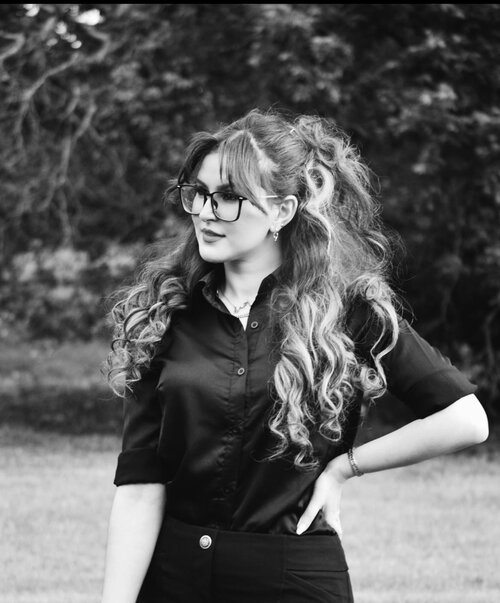
Contact Information
Office Hours
M-W 11AM-12PM (by appointment)
Biography
An accomplished linguist and language instructor with expertise in Arabic, ESL, and French. I bring a passion for cross-cultural communication, interpretation, and fostering inclusive communities through education. Holding Master's degrees in Linguistics from the University of Illinois Urbana-Champaign and Moroccan American Studies from the University of Hassan II, I combine academic rigor with real-world experience My strengths lie in facilitating meaningful exchanges across linguistic and cultural barriers.
Research Interests
My research focuses on the interplay between language and identity, particularly how multilingual speakers portray themselves and experience emotions across the various languages they speak. I am fascinated by the phenomenon of "language selves" or "cultural frames," where individuals adopt slightly different personas, communication styles, and self-presentations depending on the language they are using. These variations reflect the cultural norms, values, and expectations associated with each linguistic community.
Research Description
My research description is as follows:
This research paper aimed to explore the display of affect across the bilingual narratives of Moroccan speakers of English as a foreign language. The study examined how these individuals, who are native speakers of Moroccan Arabic (Darija) and fluent in English as a third language acquired later in life, narrated unpleasant emotional experiences in their respective languages. The goal was to evaluate participants' display of emotions in their native language (Darija) versus the foreign language (English) while narrating the same experience in both languages.
The study hypothesized that Moroccan participants would exhibit greater affect when speaking their native language, Darija, compared to English as their third language. This predicted higher level of emotional display was expected to be reflected in an increased number of interlocutory roles observed in their narratives, as well as highlighted in participants' self-reports.
To investigate this hypothesis, the study replicated the research methods of Koven (2007, 2004) and employed a qualitative research approach involving recorded Zoom interviews. Six Moroccan women narrated an unpleasant experience to two bilingual Moroccan interviewers in both English and Darija. The results were then analyzed using systematic coding and an analysis of participants' self-reports to compare and contrast the display of emotions in the narratives.
The study's findings from both analytical approaches showed an equal split between participants who displayed more affective expression in their Darija and English narratives, depending on several factors related to the nature of the story they narrated. Thus, the study contested the hypothesis that the first language (L1) tends to hold a greater display of emotions for bilingual or multilingual individuals, suggesting the need for further in-depth research to investigate how specific emotions influence the language in which participants exhibit more affect in their narratives.
Education
University of Illinois Urbana-Champaign, Champaign, IL
M.A. in Linguistics
University of Hassan II, Casablanca, Morocco
M.A. in Moroccan American Cultural Studies
B.A. in Cultural Studies
Grants
Fulbright Foreign Language Teaching Assisstanship at Saint Mary's College, Notre Dame IN.
Awards and Honors
Teachers Ranked as Excellent by Their Students - Spring 22/23
Courses Taught
ARA 201 to 408
French Beginners - TRIO UPBOUND PROGRAM